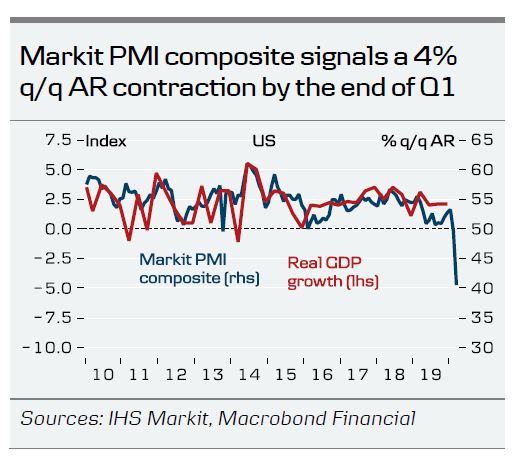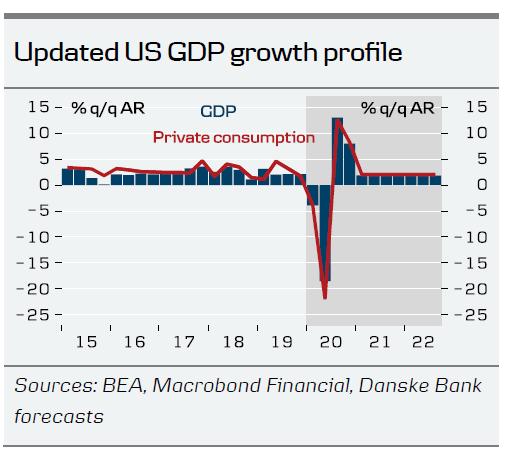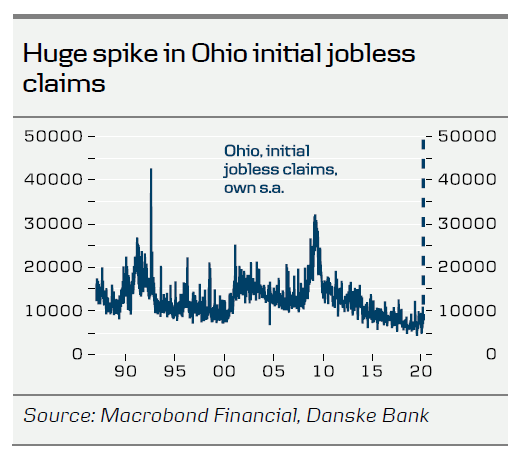Today, we got the flash PMI index from the US, which, just like the European and Japanese ones, indicates a sharp fall in GDP in March. The drop in PMI was not as big as in Europe, probably because the coronavirus crisis and the response to it are lagging what is happening in Europe. The PMI suggests US GDP is contracting by approximately 4% q/q AR in Q1. We expect April to look worse with another decline probably signalling a double-digit GDP contraction. Hence, we have updated our GDP growth forecasts and now expect GDP to contract by 3.9% q/q in AR in Q1 and by – 18% q/q AR in Q2. The underlying assumption is that the virus is shutting down the economy through April (despite Trump’s recent statement that he wants it to reopen soon) but with a gradual reopening in May. This is further based on the assumption that the corona virus peaks in late April.
There is no question we are in the middle of a deep recession and the only question is whether it will be a short-lived/technical one or a long-lasting one. We still hope and expect it to be a short-lived one and see a strong rebound in the second half of the year. We expect GDP growth to be 13.0% q/q AR in Q3 and 7.9% q/q AR in Q4. In total, we expect GDP growth in 2020 to be -1.9% rebounding to 3.1% in 2021.
We want to stress that uncertainties are extremely high and without a proper response, the risk is that this will start a negative spiral such that the economy does not rebound in H2, with this being the beginning of a long-lasting recession. We assign a 40% probability to this negative scenario playing out.
We think it was a very positive sign that the Fed has scaled-up its easing, in particular by making its new QE programme open-ended (just this week the Fed is buying a total of USD625bn US Treasuries and mortgage-backed securities versus a total of USD700bn previously), which will take the Fed’s balance over USD5,000bn. It seems like the Federal Reserve is focusing on the credit and liquidity element of the current crisis and we could see the Fed do even more, by increasing the amount offered in current programmes or making them more attractive from a pricing point of view. We think the credit market is key for the Fed’s decision to do more. This limits the probability that lack of liquidity and cash turns into a prolonged real economic downturn.
It is also positive that it seems like the negotiations on a third emergency spending package of up to USD2,000bn (9% of GDP) are moving in the right direction and it may be approved as soon as this week. This package will include very important support for both employees and employers, as it will include direct payments to Americans and more loans to struggling companies. We have already got a few regional initial jobless claims, which unsurprisingly suggest a sharp increase in unemployment, as companies are shutting down and letting people go. If jobless claims increase by the same percentage as in Ohio, national claims will increase to above 6m! Just to give another example, 11% of all employees work in the leisure and hospitality industry (including arts, entertainment, recreation, accommodation and food services) and all those jobs are in danger in the current situation



